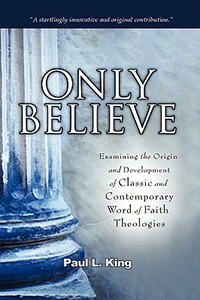“Stand at the crossroads and look: ask for the ancient paths,ask where the good way is, and walk in it” (Jeremiah 6:16, NIV).
You may have notice that in these blogs, I quote a lot from old Christian writers. The exhortation of the Scripture above is why. God tells us to ask for the ancient paths. The ancient is the key to our future. Robert Webber wrote of “The Ancient-Future Faith.”
An old African-American Pentecostal preacher, known as “Mother Tucker,” for more than 50 years was the Mother Teresa of Tulsa, Oklahoma, with her ministry to the poor and homeless, and even received an honorary doctorate from Oral Roberts University for her loving service. One of her daughters is a good friend of mine. Mother Tucker once spoke a word to a group of pastors that was really prophetic: “Everyone is looking for new revelation and God’s new thing, but the Scripture says . . . ,” and she quoted the Scripture above.
God is doing new things (Isaiah 42:9; 43:19), but He has not changed truth. As E.M. Bounds wrote toward the end of the nineteenth-century, “It is not new truth that the world needs, so much as the constant iteration of old truths, yet ever new truths of the Bible.” Again Bounds counseled shortly before his death in 1913, “Hold to the old truths—double distilled [refined].”
A.B. Simpson, commenting on Jeremiah 6:16 in the first decade of the 20th-century, declared in a similar vein, “We are not originators of truth. We are not sent to formulate a new gospel or a new theology. Rather, we are to ‘stand . . . in the ways, and ask for the old paths, where is the good way, and walk therein.’” Simpson also held that God causes old truths to become “present truths.”
Some contemporary teachers have taken old principles of faith, modified them, and sometimes strayed from sound teaching and practice. In the name of innovation and new revelation, they have in some ways sometimes abandoned the old paths. They need to stand at the crossroads and ask for the ancient paths where the good way is, and walk in it, to heed the sound teachings and examples of the classic men and women of faith. While some old traditions can quench what the Spirit is doing today, we must be careful not to disdain all “old” teaching as antiquated tradition.
Webster’s Dictionary defines a classic as “a work of enduring excellence,” “serving as a standard of excellence,” “of recognized value,” “authoritative,” “historically memorable.” The writings of many evangelical Christians of earlier times are considered to have become classics, particularly in American evangelical circles, because their insights have abided through the generations. What has often gone unnoticed is that these classic leaders were men and women of great faith.
And so I feast on these ancient writers who have timely and timeless wisdom to impart to us today—early church fathers, Reformers, evangelical mystics, Lutheran and Dutch Reformed Pietists, English Puritans, Wesleyans and Calvinists, Scotch Covenanters, Quakers and Baptists, Higher Life Leaders, and many more. Ancient writers who write about the ancient paths, and bring to life the Ancient Word of Life still speaking with relevance and life for the 21st Century—we live an Ancient-Future faith!



Leave a Reply